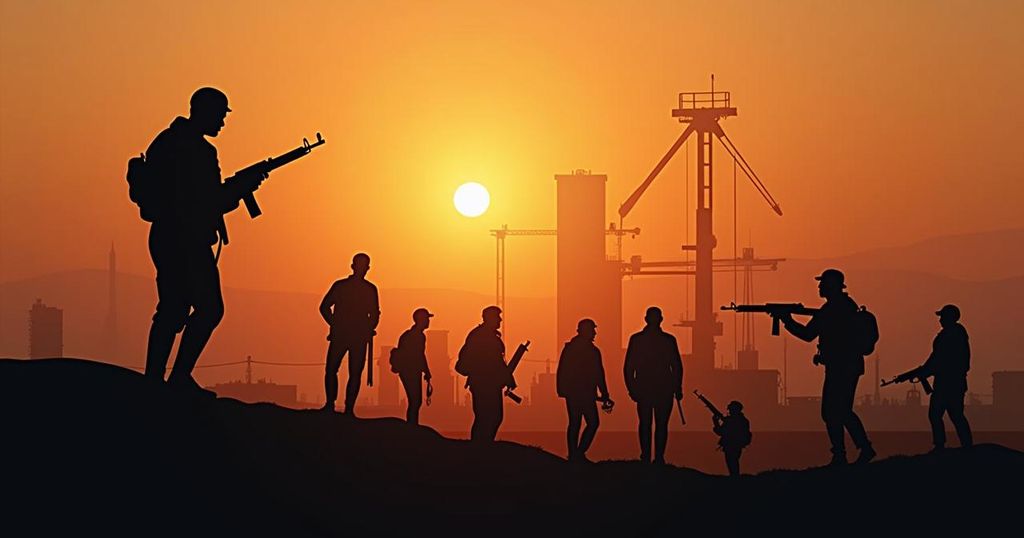The past week has seen a significant escalation in Middle Eastern tensions, marked by the assassination of Hezbollah leader Hassan Nasrallah, Israel’s ground invasion of Lebanon, and Iran’s ballistic missile attacks on the country. Diplomatic efforts for de-escalation have failed, leaving the region closer to all-out war, as military actions continue to unfold on multiple fronts.
The past week has marked a critical point in the escalating tensions in the Middle East, with recent events significantly heightening the risk of an all-out war. The assassination of Hezbollah leader Hassan Nasrallah, coupled with Israel’s incursion into Lebanon and Iran’s missile strikes against Israeli targets, has put the region on edge. On the evening of September 27, a series of explosions in Beirut resulted in the death of Hassan Nasrallah, who had long been considered a primary target of Israeli operations. This event, which followed a deadly week of Israeli assaults on Hezbollah that claimed over 500 lives, abruptly dashed any remaining hopes for diplomatic resolutions that had been discussed during the UN General Assembly. Israeli Prime Minister Benjamin Netanyahu’s swift return home from New York indicated a decisive shift away from potential diplomacy. Three days post-Nasrallah’s assassination, the Israel Defense Forces commenced a ground invasion of Lebanon, stating that their operations would be “limited and targeted.” The ongoing hostilities have resulted in approximately 1.2 million displaced individuals in Lebanon, and have led to the death of at least eight Israeli soldiers. While Israel’s aim appears to be to curtail Hezbollah’s operational capabilities, it remains unclear whether there is an intention to remove Hezbollah from Lebanon’s political sphere altogether. The conflict escalated dramatically when, on the following Tuesday, Iran launched nearly 200 ballistic missiles toward Israel, prompting alarm across the nation. The attacks showcased Iran’s attempt to reassert deterrence in the face of growing hostilities, although they did not signal an outright ambition for war, due to Iran’s awareness of its comparative vulnerabilities. In the midst of these developments, US President Joe Biden has urged restraint from Israel regarding strikes on Iranian critical infrastructure. However, tension remains palpable, with many observers questioning the stability of the region in light of Israel’s declared objective of achieving “total victory” in both Gaza and Lebanon. Meanwhile, Hezbollah has pledged to continue its resistance despite sustaining heavy losses, complicating Israel’s operational calculus. As the region grapples with these escalating tensions, with numerous players involved in this multilateral conflict landscape, the events of the past week suggest a dramatic expansion of the ongoing hostilities surrounding Gaza, raising fears of a wider conflict looming on the horizon.
The Middle East has been embroiled in conflict for decades, with Israel and Hezbollah being longstanding adversaries. Recent flare-ups of violence have underscored the fragility of the situation, particularly following Hamas’s attacks on Israel over a year ago. Iran’s role as a supporter of Hezbollah adds layers of complexity to the dynamics of the conflict. The assassination of key figures, military incursions, and missile strikes reflect the volatile nature of these hostilities and the potential for a broader regional war. Throughout the years, various efforts by international bodies, including the UN, have sought to mitigate conflicts, but these have often met with limited success given the entrenched positions of the involved parties.
In summary, the recent week of turmoil in the Middle East has brought the region dangerously close to full-scale war, following the assassination of Hassan Nasrallah, Israel’s military actions in Lebanon, and Iran’s missile assault. Diplomatic endeavors for de-escalation have largely faltered, leaving the outlook precarious. With numerous stakeholders now engaged and personal stakes entrenched, the potential for further escalation remains high, underscoring the urgent need for renewed efforts to quell hostilities and foster peaceful dialogue.
Original Source: www.bbc.com






